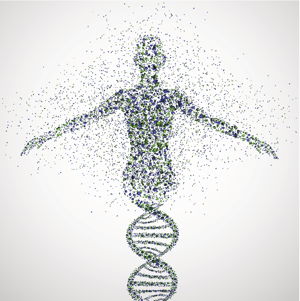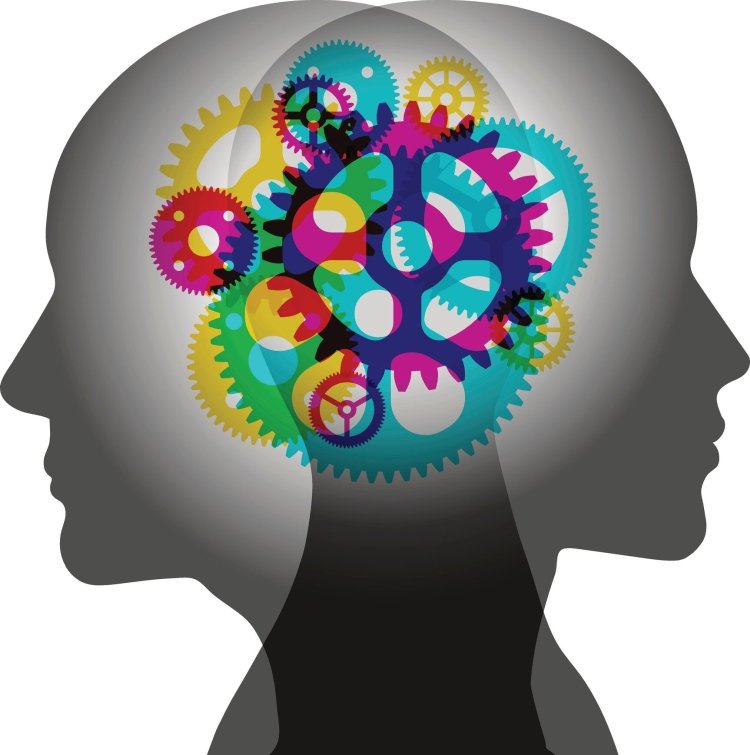sIt is well known that ADHD is a complex disorder with a variety of potential causes. Some of these causes are environmental, while others are neurological or psychological. However, recent research suggests that genetics may also play a role in the development of ADHD. This means that some people may be more likely to develop ADHD due to their genes, and there is not much they can do about it. In this blog post, we will discuss the role of genetics in the development of ADHD. We will also talk about how this information can help treat and manage the disorder.
Contents
What Is ADHD?
Attention deficit/hyperactivity disorder (ADHD) is a mental disorder that affects people of all ages. It characterizes by problems with focus, hyperactivity, and impulsivity. ADHD can cause difficulties in school, work, and social situations. It is one of the most common childhood disorders, and it often persists into adulthood.
Is ADHD Genetic?
There is no single cause of ADHD. Instead, it is thought to be caused by a combination of environmental and genetic factors. This means that some people may be more likely to develop ADHD due to their genes, while others may develop it due to their environment.
Facts About Genetic ADHD

- One study found that genetics may account for up to 60% of the risk for developing ADHD. This suggests that genetics plays a significant role in the development of the disorder. However, it is important to remember that this does not mean that all people with ADHD have the same genetic makeup. There are many different genes that have been linked to the development of ADHD, and each person has a unique combination of these genes.
- Certain complications during pregnancy and childbirth process also increase the risk for developing ADHD. For example, babies who are born prematurely or have low birth weight are more likely to develop ADHD. Women who drink or smoke during pregnancy also are prone to have a child with developmental issues.
- Brain damage or head injuries, either during pregnancy or in childhood, are also linked with an increased risk for ADHD. This is thought to be due to the fact that these injuries can damage the parts of the brain responsible for attention and self-control.
- It is also important to remember that not everyone with these risk factors will develop ADHD. In fact, most people who have one or more of these risk factors will never develop the disorder. This shows that there are other factors involved in the development of ADHD, and further research is needed to determine what these factors are.
- Additionally, ADHD is not caused by a single gene. Instead, it is thought to be the result of multiple genes working together. This makes it difficult to identify which specific genes are responsible for the development of ADHD.
How Is This Information Beneficial?

This information about the role of genetics in the development of ADHD can be used in a number of ways.
- First, it can help to explain why some people are more likely to develop ADHD than others. This may help to identify those at risk for the disorder and get them the help they need.
- This information can also be used to help doctors make decisions about how to best treat and manage their conditions.
- Additionally, this information may be used to develop new and better treatments for ADHD. Finally, this knowledge can help to reduce the stigma surrounding ADHD.
- Moreover, this information may also help researchers develop new treatments for ADHD that can have specific alterations to people with certain genetic makeup.
- By understanding that genetics plays a role in the development of the disorder, we can also see that it is not simply a matter of bad parenting or laziness. This can help to change the way we think about ADHD and those who live with it.
Other Causes Of ADHD
While genetics may play a role in the development of ADHD, it is important to remember that there are other potential causes as well.
Exposure to toxins: Certain toxins, such as lead, can damage the brain and cause ADHD-like symptoms.
Hormonal imbalance: Imbalances in hormones, such as thyroid hormone or testosterone, can also cause ADHD.
Maternal health: Conditions like diabetes or high blood pressure during pregnancy can increase the risk for ADHD.
Stressful life events: stressful life events, such as divorce or the death of a loved one, can also trigger ADHD symptoms.
Trauma: Traumatic experiences, such as abuse or neglect, can also cause ADHD.
Other medical conditions: There are also a number of other medical conditions that can cause ADHD-like symptoms, such as sleep disorders, thyroid problems, and anxiety disorders.
It is important to remember that there is no single cause of ADHD. Instead, it is thought to be caused by a combination of environmental and genetic factors. This means that different people may develop ADHD for different reasons. However, genetics does seem to play a significant role in the development of the disorder.
How Is ADHD Diagnosed?

If you or someone you know is displaying symptoms of ADHD, it is important to seek professional help.
ADHD can only get a diagnosis by a qualified mental health professional, such as a doctor, psychologist, or psychiatrist.
During the evaluation process, the mental health professional will ask questions about your medical history and symptoms. They may also administer tests, such as IQ tests or assessments of executive functioning.
It is important to remember that there is no single test that can diagnose ADHD. Instead, diagnosis is based on a comprehensive evaluation of all available information.
Some common interventions used to administer and test the presence of ADHD include:
- Clinician-Administered Rating Scale for ADHD-IV (CAARS-IV)
- Test of Variables of Attention (TOVA)
- Conners’ Continuous Performance Test II (CPTII)
- Connors Adult ADHD Rating Scales (CAARS)
These are only a few of the possible interventions that can help in diagnosis of ADHD. Other techniques such as neuroimaging or genetic testing are not currently in use to diagnose ADHD. However, research in these areas is ongoing and it is possible that they may be put to use in the future.
Once a diagnosis of ADHD is official, the mental health professional will work with you to develop a treatment plan. This may include medication, psychotherapy, education, and/or lifestyle changes.
The mental health professional will likely use a combination of these interventions, as well as their clinical judgment, to make a diagnosis.
Treatment Options
It is important to remember that there is no single “cure” for ADHD. However, with proper treatment, most people with ADHD can lead happy and successful lives.
The most common treatment options for ADHD include:
Medication: Stimulant medications, such as methylphenidate (Ritalin) and amphetamines (Adderall), are the most commonly prescribed medications for ADHD. These drugs work by increasing levels of dopamine and norepinephrine in the brain, which can improve focus and concentration. Non-stimulant medications, such as atomoxetine (Strattera) and guanfacine (Intuniv), can also sometimes treat ADHD. These drugs work by affecting different neurotransmitters in the brain than stimulants.
Psychotherapy: Psychotherapy, or “talk therapy,” can be an effective treatment for ADHD. Cognitive-behavioral therapy (CBT) is a type of psychotherapy that has been particularly helpful in treating ADHD. CBT can help people with ADHD learn to manage their symptoms and make lifestyle changes.
Education and support: Education and support are important for people with ADHD and their families. Learning about the disorder can help people with ADHD understand their symptoms and develop coping strategies. Support groups can also provide valuable information and support.
Lifestyle changes: There are a number of lifestyle changes that can help people with ADHD manage their symptoms. They include:
- Getting regular exercise
- Eating a healthy diet
- Limiting screen time
- Practicing meditation or mindfulness
- Developing a regular sleep routine
If you or someone you know is displaying symptoms of ADHD, it is important to seek professional help. Treatment can vary depending on the individual, but the goal is always to help the person with ADHD manage their symptoms and live a fulfilling life.
Conclusion
ADHD is a complex disorder that is believed to be caused by a combination of genetic and environmental factors. While there is no single “cure” for ADHD, most people with the condition can lead happy and successful lives with proper treatment. If you or someone you know is displaying symptoms of ADHD, it is important to seek professional help. With the right interventions, people with ADHD can manage their symptoms and live fulfilling lives.
For more information, please contact MantraCare. ADHD is a neurodevelopmental disorder characterized by difficulty in paying attention, hyperactivity, and impulsivity. If you have any queries regarding Online ADHD Counseling experienced therapists at MantraCare can help: Book a trial ADHD therapy session


